Ariel Davis
Illustrator
From this contributor
New questions around motor neurons and plasticity
A researcher’s theory hangs muscle degeneration on a broken neural circuit.
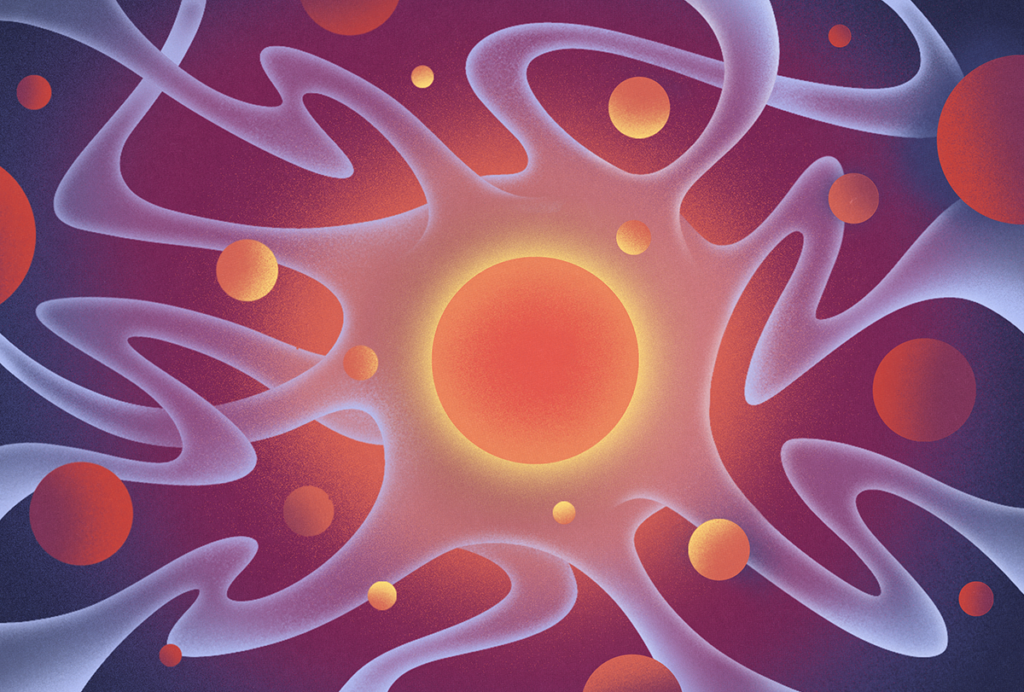
New questions around motor neurons and plasticity
Should neuroscientists ‘vibe code’?
Researchers are developing software entirely through natural language conversations with advanced large language models. The trend is transforming how research gets done—but it also presents new challenges for evaluating the outcomes.
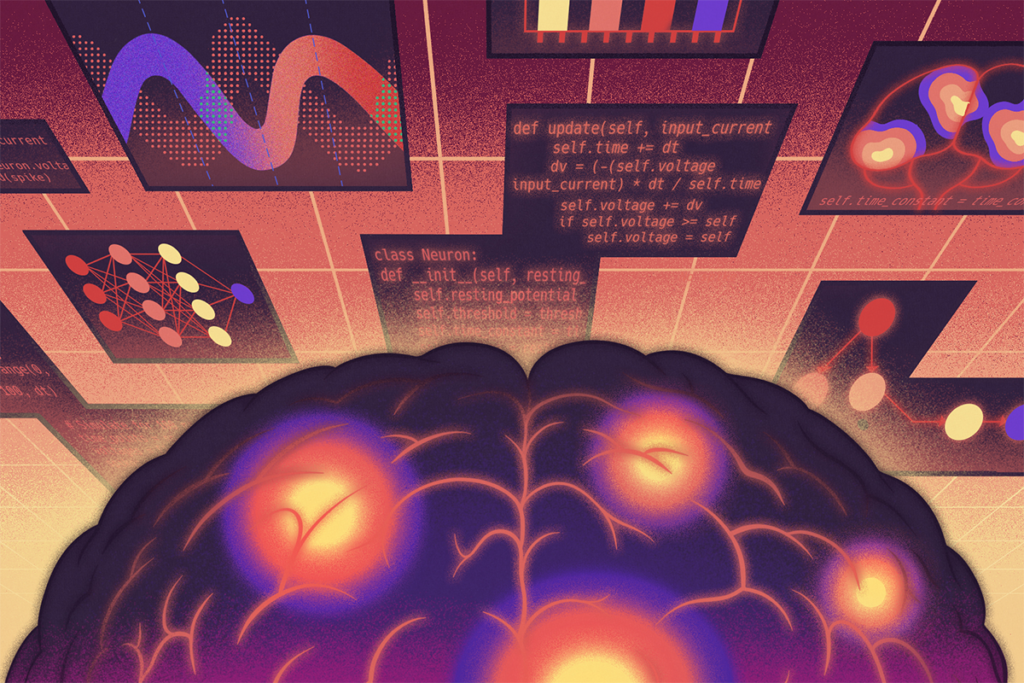
Should neuroscientists ‘vibe code’?
Computational and systems neuroscience needs development
Embracing recent advances in developmental biology can drive a new wave of innovation.
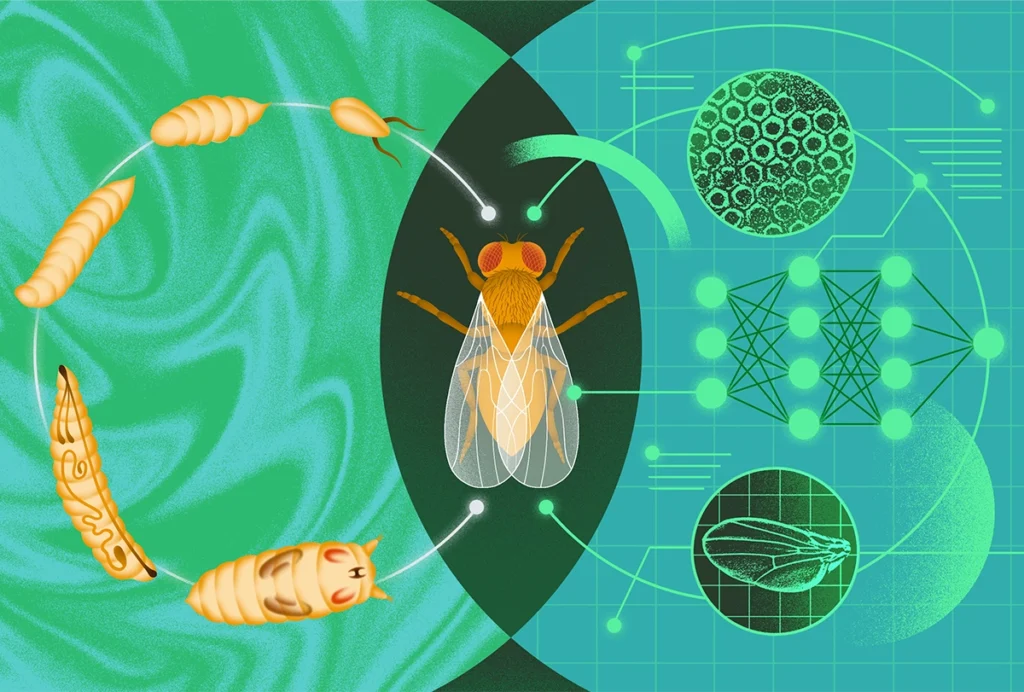
Computational and systems neuroscience needs development
Experimentalists versus modelers — whose work has more lasting impact?
My informal analysis of some of neuroscience’s most cited papers from 1999 explores what drives scientific durability.
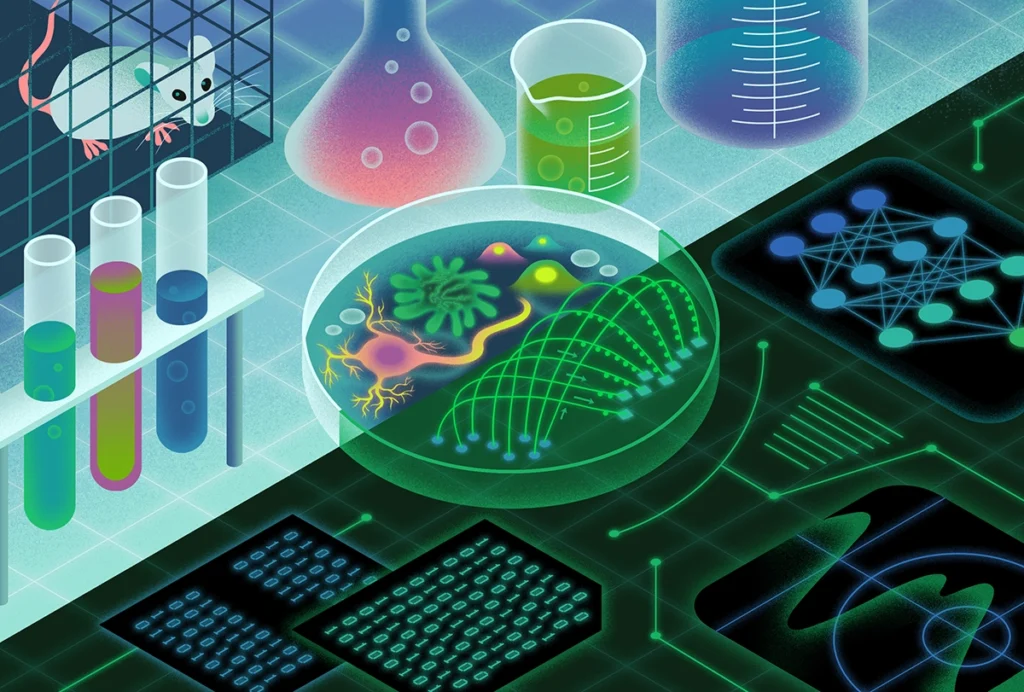
Experimentalists versus modelers — whose work has more lasting impact?
Name this network: Addressing huge inconsistencies across studies
Entrenched practices have stymied efforts to build a universal taxonomy of functional brain networks. But a new tool to standardize brain-imaging findings could bring us a step closer.
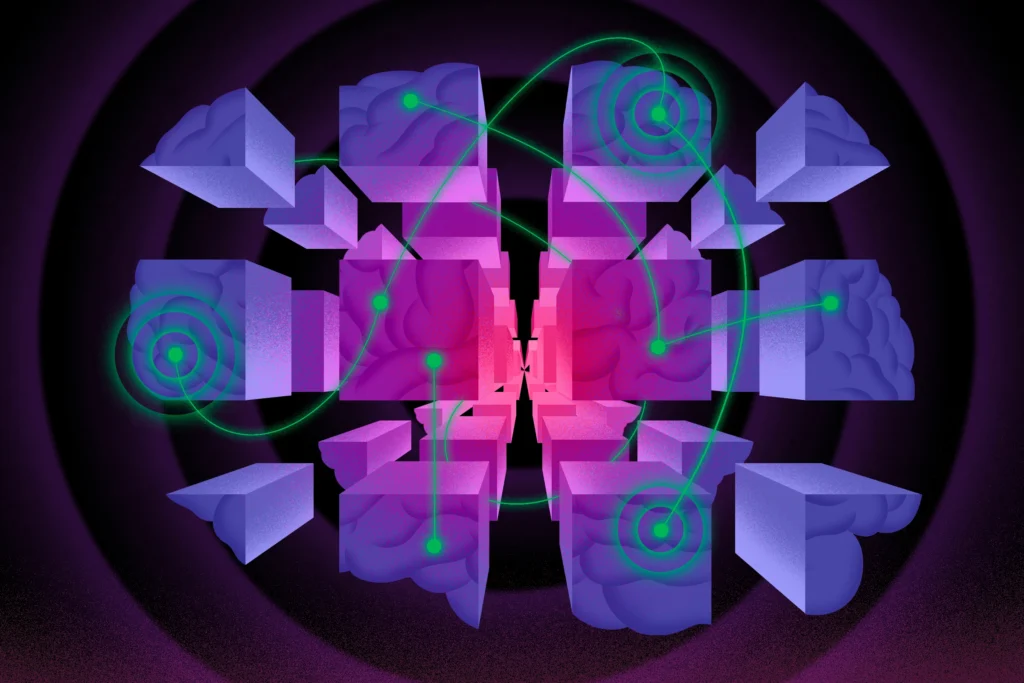
Name this network: Addressing huge inconsistencies across studies
Explore more from The Transmitter
Neuro’s ark: Spying on the secret sensory world of ticks
Carola Städele, a self-proclaimed “tick magnet,” studies the arachnids’ sensory neurobiology—in other words, how these tiny parasites zero in on their next meal.

Neuro’s ark: Spying on the secret sensory world of ticks
Carola Städele, a self-proclaimed “tick magnet,” studies the arachnids’ sensory neurobiology—in other words, how these tiny parasites zero in on their next meal.
Autism in old age, and more
Here is a roundup of autism-related news and research spotted around the web for the week of 2 March.

Autism in old age, and more
Here is a roundup of autism-related news and research spotted around the web for the week of 2 March.
Lack of reviewers threatens robustness of neuroscience literature
Simple math suggests that small groups of scientists can significantly bias peer review.

Lack of reviewers threatens robustness of neuroscience literature
Simple math suggests that small groups of scientists can significantly bias peer review.